SEO Keyword Research Tips
Here’s the six SEO keyword research tips we’ll cover in this post to help you choose keywords for SEO:
- Where do you currently rank?
- Which keywords convert?
- Which keywords have volume?
- What keywords have value?
- What’s the content idea?
- Who creates the content?
Let’s go for it.
Goals for SEO Keyword Research
Before diving to choosing keywords for SEO, let’s start with why you’re creating SEO content in the first place.
The goal of creating SEO content for your business is really simple: create value.
We define “value” in two ways.
1. Equivalent Cost. How can you define the value of traffic? By analyzing the equivalent cost of monthly traffic from PPC. In other words, if you paid via PPC for those clicks instead of ranking organically for your keywords, what would that cost?
This helps us assign a dollar value to inbound search traffic.
2. Conversions. Move beyond the hypotheticals. What keywords are going to produce sales and leads?
With this goal in mind – to create valuable SEO content – the ability to choose keywords for SEO becomes much easier.
SEO Keyword Research Tips
Now that we’ve defined why we’re creating SEO content, let’s dive into our SEO keyword research tips. All of these tips are simply questions that inspire keyword research to be performed.
For this example, we’ll use our own company: Markitors.
1. Where do you currently rank?
What do you think of when you hear the name Michael Jordan? Or McDonald’s?
Instantly, you are able to associate topics with their area of expertise. Basketball. Burgers. Etc.
Google is the same way. They categorize and associate your site with certain topics they view you as an authority on. That’s why it’s important to discover relevant keyword clusters with your site, so that you can build more content Google views as valuable.
Let’s take Markitors.
One quick look at Google Search Console tells us that our website is primarily known for digital marketing, online marketing, and Mailchimp.
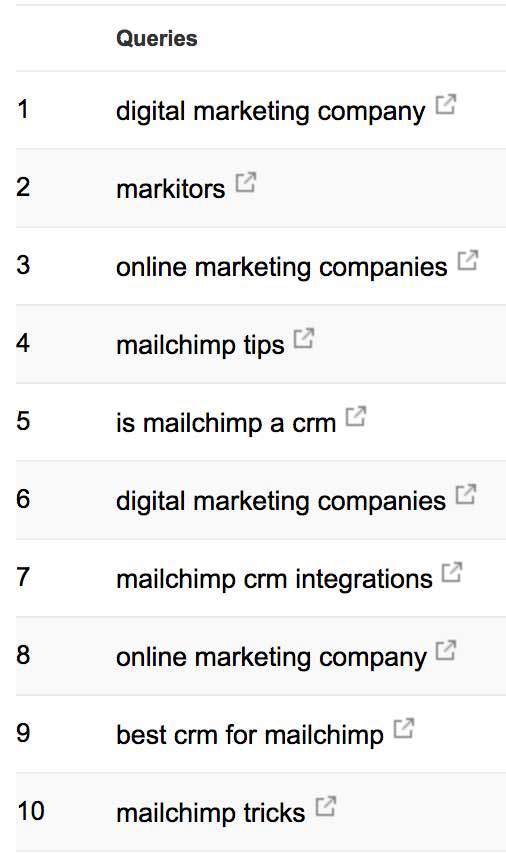
With these keyword clusters in mind, it’s time to find keywords within these categories.
SEO Keyword Research Tip: Find relevant keyword clusters to build from.
2. Which keywords convert?
What keywords are going to produce sales and leads? Let’s type one of our keyword cluster categories into the Ahrefs Keyword Explorer:
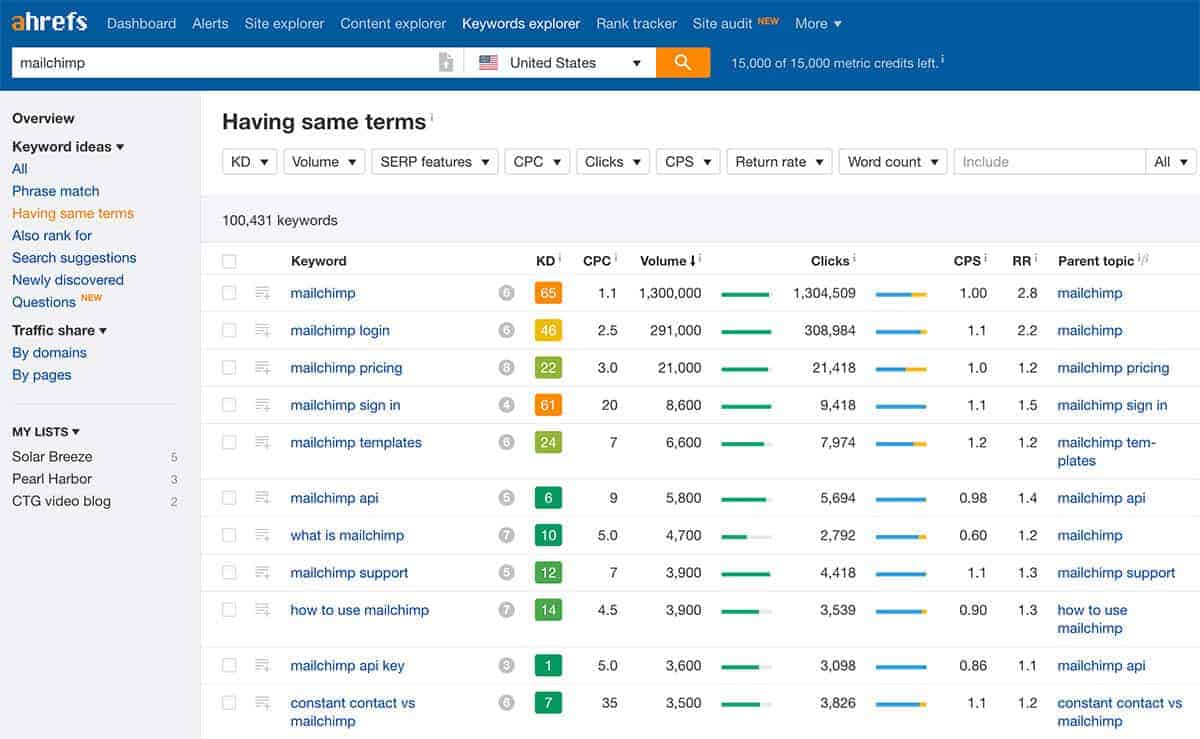
This keyword list presents an interesting set of questions that we must now ask ourselves:
- Who is our customer?
- What search result is going to produce the desired action of a sale or conversion?
- Does our Google Analytics, and Google Ads data confirm that these keywords produce results?
For Markitors, one of our customer personas is a company switching email platforms. A quick look at our keyword list identifies one keyword that fits this persona: constant contact vs mailchimp.
Put it on the list.
Then, continue to explore the list of keyword suggestions and begin to form a list.
SEO Keyword Research Tip: Find keywords with the potential to convert prospects to clients.
3. What keywords have volume?
At the end of the day, you want keywords that will convert at a high volume. That’s why the next step in conducting SEO keyword research is to put all your keywords in a spreadsheet with monthly search volume, value, and difficulty of ranking.
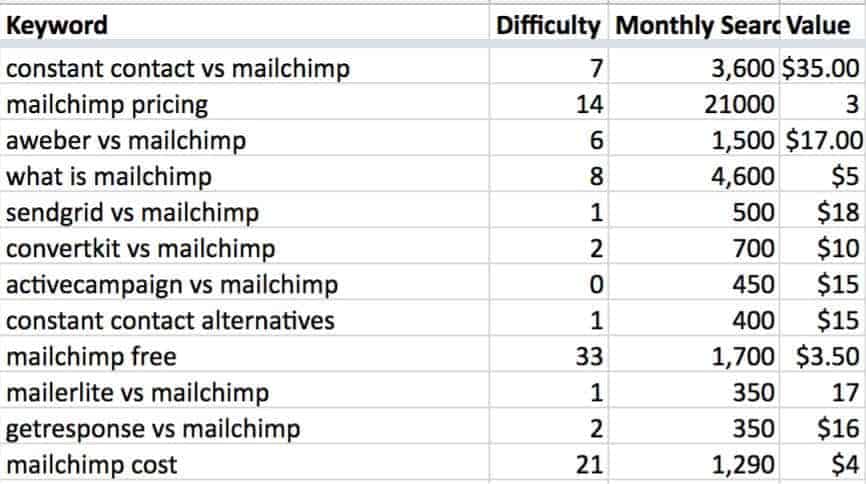
This list should be long. The more keywords you’ve identified, the more data you can calculate in our next step to determine what content you should create.
SEO Keyword Research Tip: Create a long list of keywords using Ahrefs and what Google gives you. Include Monthly Search Volume, Value, expected click through rate (traffic), and difficulty of ranking.
4. Prioritize Content Based on Value
What keyword has the most value?
This is where we get to do some spreadsheet calculations. We’ll factor in elements like difficulty of ranking, expected click through rate if we were to rank on the first page of search results, and the monthly / annual values of the content.
The end result is a prioritized list of content to create, based on value.
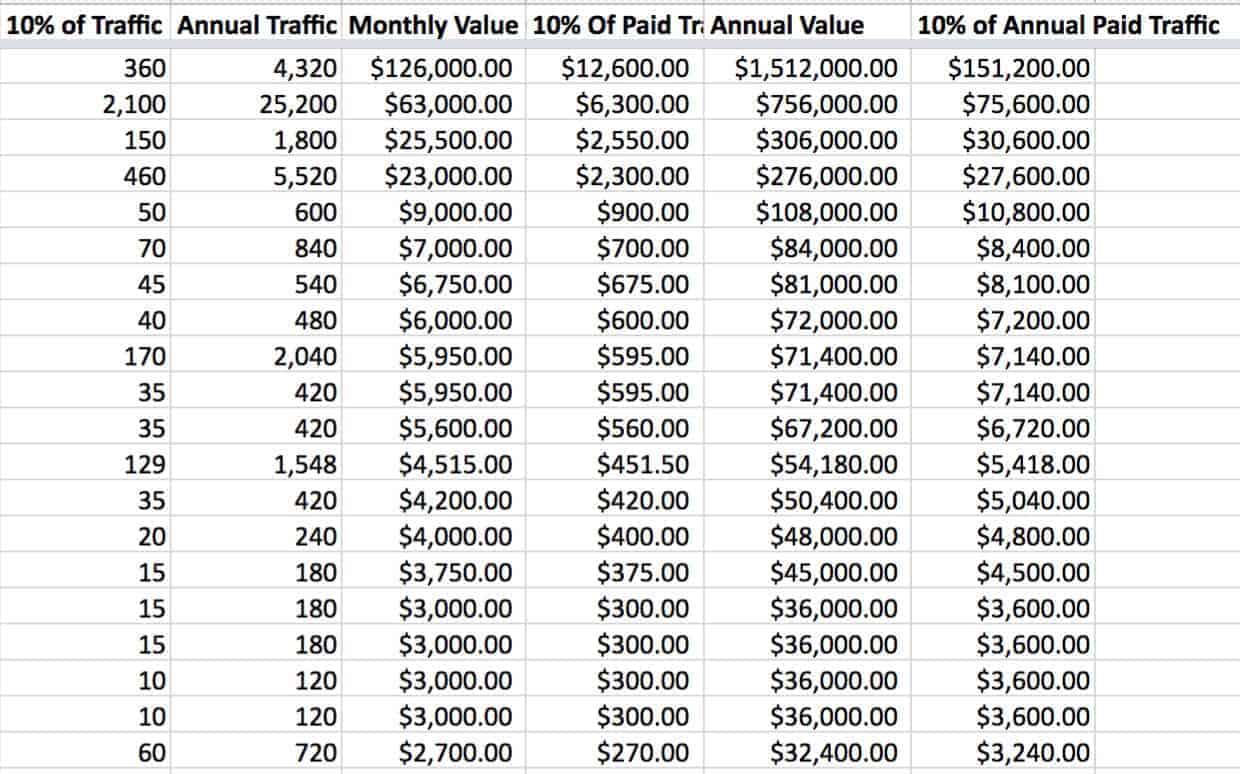
SEO Keyword Research Tip: Prioritize content by value, and factor in difficulty ranking.
5. Content Ideas
From here, it’s time to create a SEO content marketing strategy.
The first step is to research competitors. Do this by doing a Google search for your keyword.
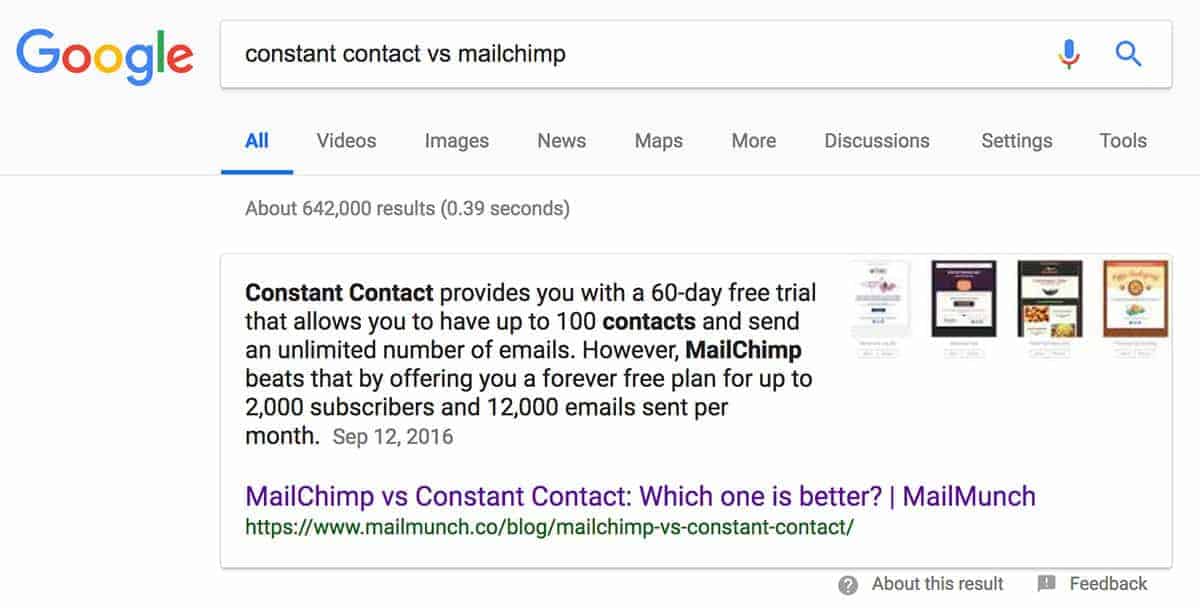
Then, find an angle. You’ll need to make your content better than your competitor to outrank them.
Once you have an angle, create a content brief and include in your spreadsheet.
SEO Keyword Research Tip: Make content better than your competitor.
6. Execute: Create the content
The last step (before doing the promotion of the content – which is a whole other post) is to create the content.
Outsource it. Assign it internally. Do what you have to do to create the content that will help you bring in the organic search traffic.
When it all comes together, here’s the end result…a blog about Constant Contact vs Mailchimp. 🙂
Good luck.







